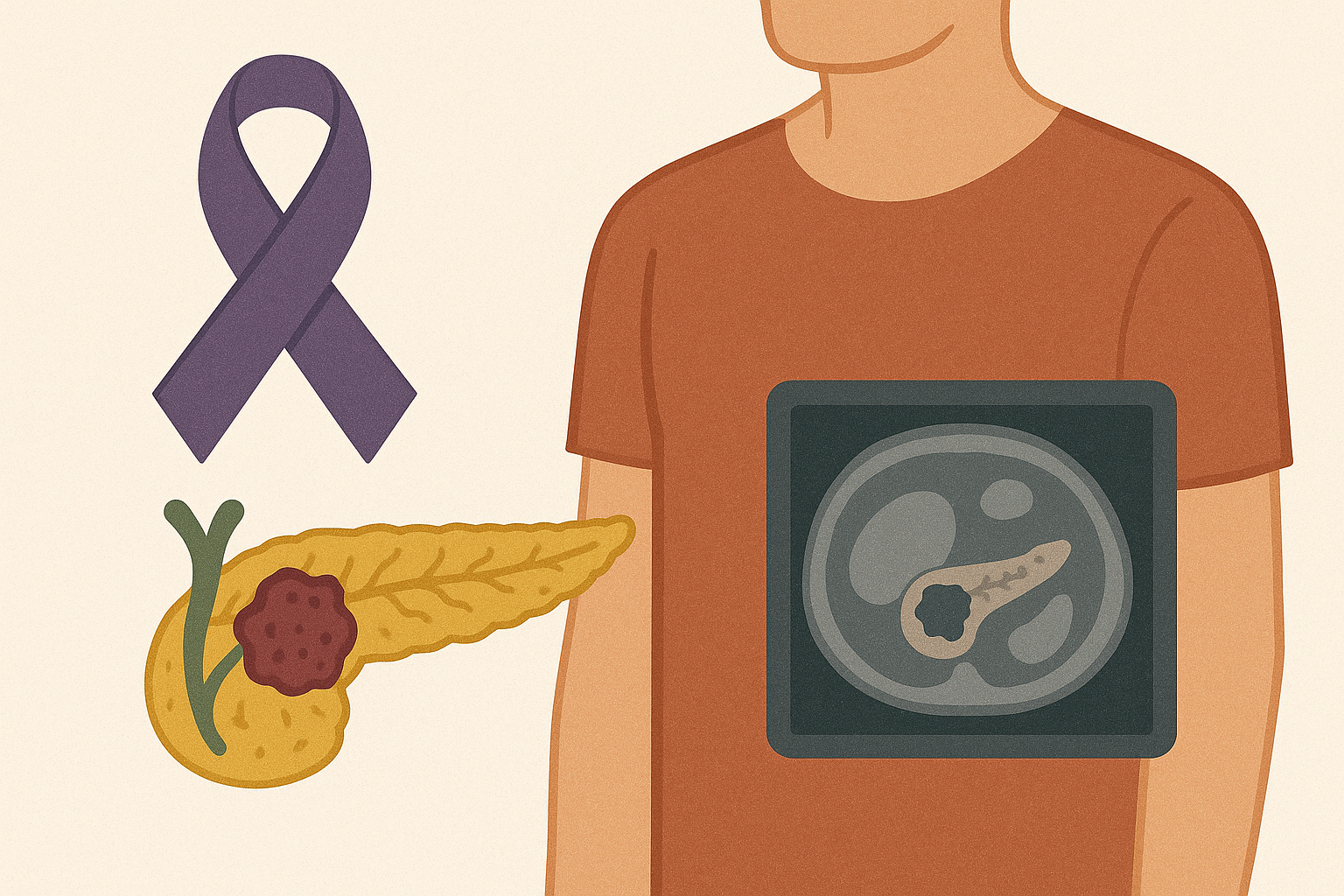
Pancreatic Cancer: Causes, Symptoms, and Treatment
What kind of disease is this?
Who is affected?
What are its symptoms, methods of diagnosis, and treatment options?
Are you looking for answers to questions about this disease for yourself or your loved ones? We are here exactly for this purpose — to provide you with the most reliable information.
Let’s first talk a little about what the pancreas is. Unlike the heart or the brain, this organ doesn’t usually draw much attention, but it performs a very important role in the human body. It can be compared to a backstage worker in a theater. Shaped like a fish, this small organ lies behind your stomach and constantly produces enzymes that help digest food, as well as hormones that regulate blood sugar levels.
Pancreatic cancer usually begins in the ducts of the pancreas. When changes occur at the cellular level — for example, small changes or mutations in DNA — cells begin to multiply more than normal, forming tumors. If not treated in time, these cancer cells can spread to other parts of the body, making the situation more complicated.
Who does it affect?
Pancreatic cancer can occur in anyone, but some people are at higher risk.
The biggest risk factor is age. Most patients develop this type of cancer after the age of 65. However, other factors can also increase the likelihood of developing the disease, such as:
- Smoking
- Diabetes
- Chronic pancreatitis (long-term inflammation of the pancreas)
- A family history of cancer
- Certain genetic conditions
- Being overweight
Studies show that when factors like smoking, diabetes, and poor diet combine, the risk of pancreatic cancer increases even further.
What are the symptoms of the disease?
Unfortunately, pancreatic cancer often does not show any symptoms in its early stages, which makes early detection very difficult. Usually, when symptoms appear, the disease is already at an advanced stage. Possible symptoms include:
- Abdominal pain radiating to the back in a belt-like pattern
- Loss of appetite
- Unexplained weight loss
- Yellowing of the skin or eyes (jaundice)
- Pale-colored stools
- Dark-colored urine
- Itchy skin
- Difficulty controlling blood sugar levels
- General weakness
If you notice one or more of these symptoms, seek medical attention immediately.
How is it diagnosed?
If your doctor suspects pancreatic cancer, they may recommend several tests to confirm or rule out the diagnosis, such as:
- Ultrasound
- CT scan
- MRI
- PET-CT (to get a clearer picture of internal organs)
- Endoscopic ultrasound (a small camera is inserted through the esophagus to examine the pancreas more closely; sometimes a tissue sample is taken for microscopic analysis)
- Blood tests, particularly checking for tumor markers like CA 19-9, which may be elevated in pancreatic cancer.
Once the diagnosis is confirmed, the next step is determining the stage of the cancer, which requires additional testing. All of this helps doctors choose the most appropriate treatment plan.
How is it treated?
To determine the right treatment plan, doctors consider your overall health, the stage of the cancer, and of course, your own preferences. Treatment options may include:
- Chemotherapy: Drugs that fight cancer cells throughout the body.
- Radiation therapy: High-energy beams aimed directly at the tumor to destroy cancer cells.
- Surgery: In some cases, removing the tumor and surrounding tissue.
- Clinical trials: Medicine is advancing rapidly, and new treatments are being developed every day. You may discuss with your doctor whether participating in clinical trials is suitable for you.
- Palliative care: To relieve pain and improve quality of life when symptoms are severe.
Hearing this diagnosis can be very difficult, both for patients and their loved ones. That’s why we recommend first of all to learn as much as possible about the disease. This knowledge can strengthen your confidence during treatment. Most importantly, don’t hesitate to seek help and support from family and friends.
Your health is very important to us.
If you would like to receive more useful medical information like this, follow us on Med 36.6.
Contact us today!
Working hours
Monday – Friday: 08:30 – 17:00
Saturday: 09:00 – 14:00
Sunday: Closed
